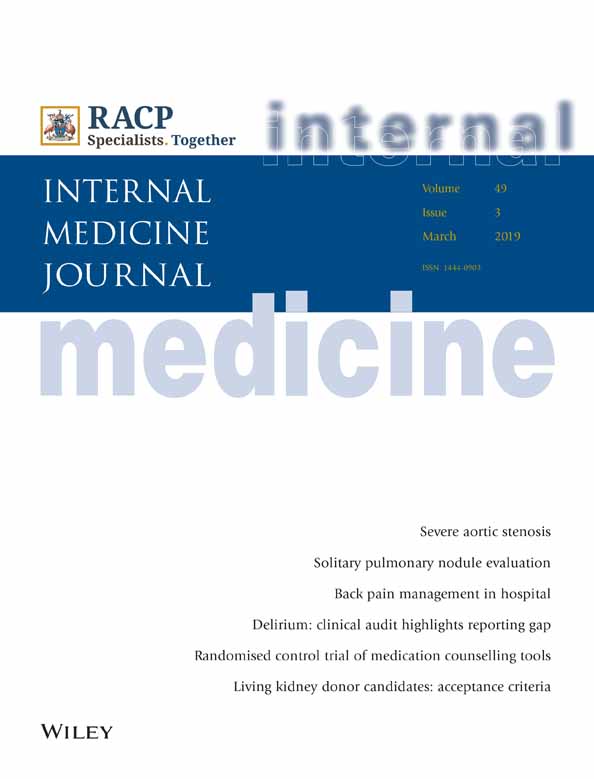Similar outcomes for general medicine patients discharged on any day of the week
Abstract
Background
Hospital congestion is worsened by fewer patients being discharged on the weekend than on weekdays. Weekend admissions fare worse in hospital than weekday admissions. Understanding the fate of patients discharged on the weekend, or any particular weekday, may help optimise hospital discharge processes.
Aim
To determine the effects of weekend and specific weekday discharges on adverse outcomes (mortality and readmission to hospital).
Methods
Electronic records were used to identify unplanned admissions to two large public hospitals across a 5-year period. Day of week of discharge, the inpatient length of stay, unplanned readmissions and mortality rate were determined.
Results
There was a significant reduction in discharges on the weekend (49%), particularly for patients who were older or with significant comorbidity (P < 0.001). Adjusting for these differences, there was no difference in readmission and mortality between weekday and weekend discharges within two (OR 0.97; 95% CI 0.83–1.14; P < 0.76) or seven (OR 0.91; 95% CI 0.82–1.01; P < 0.07) days of discharge. By 30 days, there were significantly fewer adverse outcomes for those discharged on the weekend (OR 0.89; 95% CI 0.83–0.96; P < 0.001). There was no difference in adverse outcome rates for patients discharged on Mondays, Wednesdays or Fridays.
Conclusion
Fewer patients are discharged on the weekend and these are typically younger, less complex patients. Patients discharged on the weekend fare similarly or better than those discharged on a weekday. Therefore, a push to discharge more patients on the weekend could improve hospital efficiency without compromising patient care.




